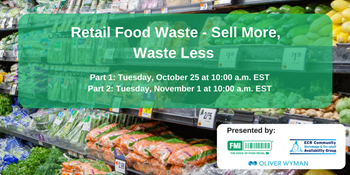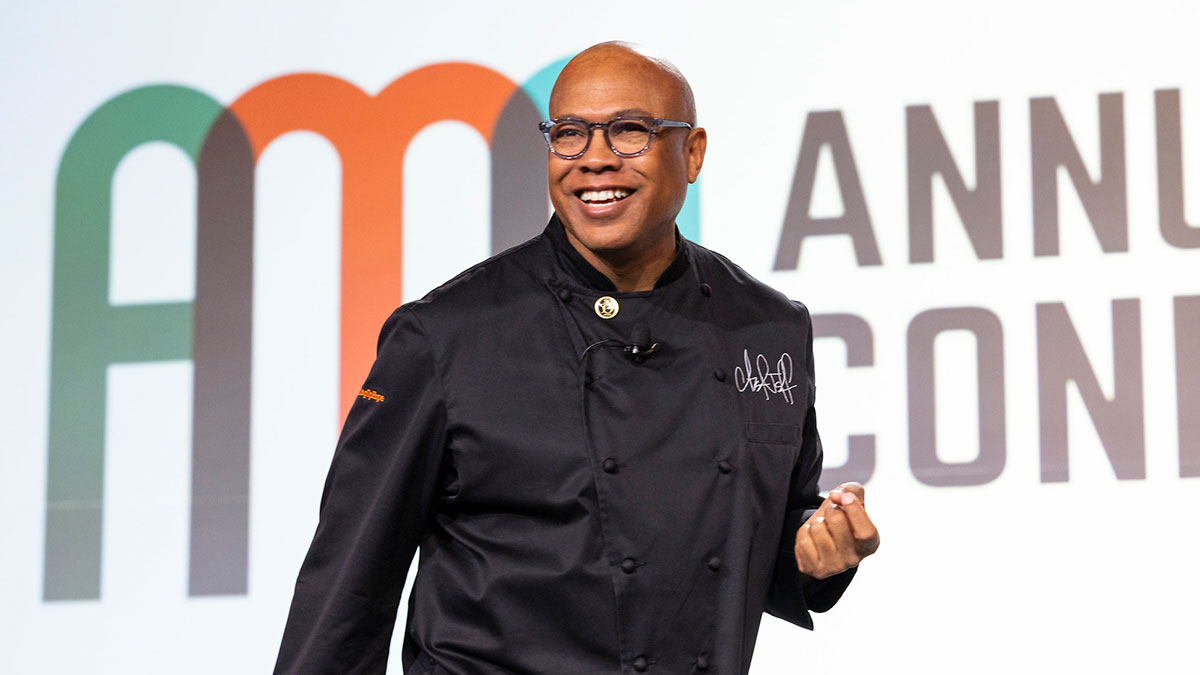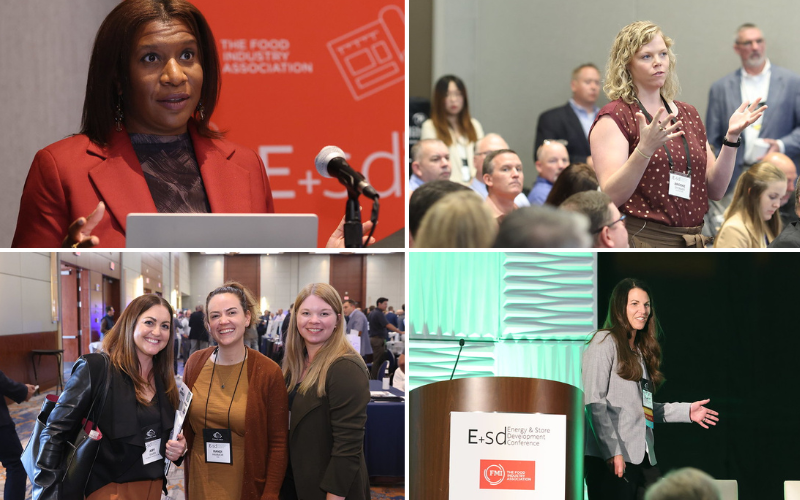By: Andrew Harig, Senior Director of Sustainability, Tax & Trade, Food Marketing Institute
 The challenge of reducing food waste has never been more in focus for the food wholesale and retail industry. By some estimates, as much as a third of all food produced is lost or wasted from farm to fork. As a founding member of the Food Waste Reduction Alliance (FWRA), FMI and the food retail industry are committed to collaborating with our supply chain partners to adopt new strategies for reducing waste and increasing food donation in a pragmatic way that focuses on feeding families. One of the most obvious lessons we’ve learned from our work is also one of the toughest to consistently follow-through on – the best way to reduce waste is not to create it in the first place. FMI – in collaboration with our international business partners – is striving to change this dynamic by developing new strategies that streamline the supply chain and significantly reduce the amount of waste being created.
The challenge of reducing food waste has never been more in focus for the food wholesale and retail industry. By some estimates, as much as a third of all food produced is lost or wasted from farm to fork. As a founding member of the Food Waste Reduction Alliance (FWRA), FMI and the food retail industry are committed to collaborating with our supply chain partners to adopt new strategies for reducing waste and increasing food donation in a pragmatic way that focuses on feeding families. One of the most obvious lessons we’ve learned from our work is also one of the toughest to consistently follow-through on – the best way to reduce waste is not to create it in the first place. FMI – in collaboration with our international business partners – is striving to change this dynamic by developing new strategies that streamline the supply chain and significantly reduce the amount of waste being created.
Fortunately, there is already groundbreaking work being done on this issue that quantifies the relationship between On-Shelf Availability (OSA) and waste creation. Our strategic partners at Oliver Wyman and Efficient Consumer Response Community Shrinkage and On-Shelf Availability Group suggest in a new analysis, Sell More Waste Less, that large reductions in waste are possible in the fresh supply chain if certain key best practices are brought to bear. These best practices not only help retailers reduce waste and increase a product’s shelf life, they can have a significant impact on supply chain costs. As these findings make clear, there is a powerful business case for addressing food waste at the store level that can also have a positive impact on consumer’s own waste creation.
In partnership with the ECR Community Shrinkage and On-Shelf Availability Group and Oliver Wyman, we’re hosting a two-part webinar series where we’ll address these best practices; suggest tangible and accurate ways of predicting waste; and practically looking at the relationship between waste volume and the scope for improvement. The series will feature both academic and real-world applications regarding:
- New academic research on food waste that has real world application;
- A retailer case study; and
- What leadership is needed to deliver an improved sustainable performance?
Register to attend the webinars on October 25 and November 1.


 Industry Topics address your specific area of expertise with resources, reports, events and more.
Industry Topics address your specific area of expertise with resources, reports, events and more.
 Our Research covers consumer behavior and retail operation benchmarks so you can make informed business decisions.
Our Research covers consumer behavior and retail operation benchmarks so you can make informed business decisions.
 Events and Education including online and in-person help you advance your food retail career.
Events and Education including online and in-person help you advance your food retail career.
 Food Safety training, resources and guidance that help you create a company food safety culture.
Food Safety training, resources and guidance that help you create a company food safety culture.
 Government Affairs work — federal and state — on the latest food industry policy, regulatory and legislative issues.
Government Affairs work — federal and state — on the latest food industry policy, regulatory and legislative issues.
 Get Involved. From industry awards to newsletters and committees, these resources help you take advantage of your membership.
Get Involved. From industry awards to newsletters and committees, these resources help you take advantage of your membership.
 Best practices, guidance documents, infographics, signage and more for the food industry on the COVID-19 pandemic.
Best practices, guidance documents, infographics, signage and more for the food industry on the COVID-19 pandemic.
